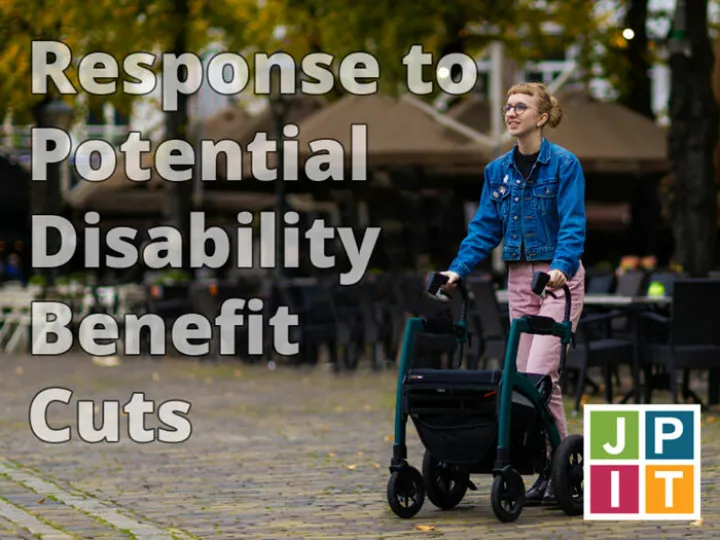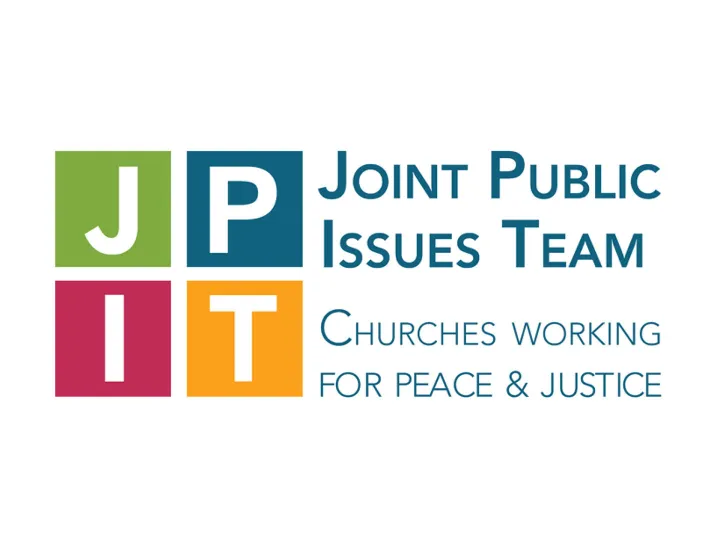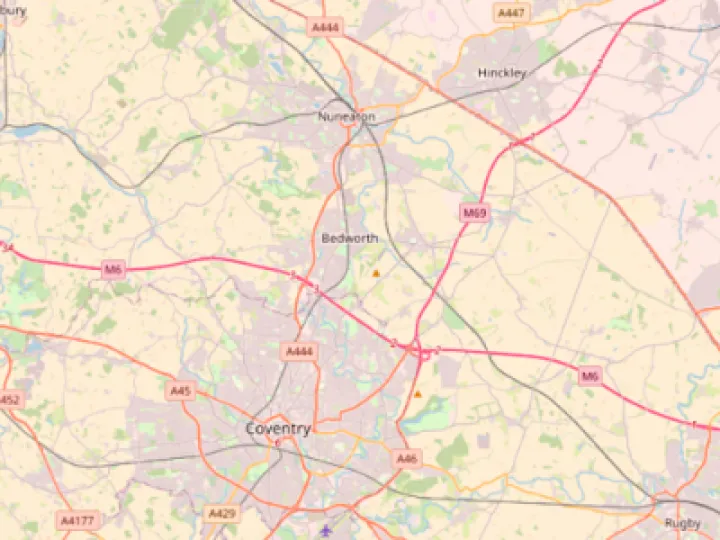JPIT Response to Potential Disability Benefit Cuts
In the November 2024 budget the Chancellor decided to keep the last government's £3bn of disability benefit cuts for the next three years. This was called a "difficult decision". Over the past week, the government was busily spinning that because "the world has changed" there are to be more difficult choices in the March 2025 financial statement. The world may have changed, but the difficult choice offered is remarkably similar – additional reductions in the living standards of the disabled. This time with cuts of between £2bn and £7bn.
From an uncertain economy to certain hunger via "a difficult decision"
The UK economy has not been healthy for some time and is not recovering as hoped. However, it is the problem of a "changing world" and global economic uncertainty that the government says it is responding to.
Widespread uncertainty leads to negative but uncertain economic forecasts, which leads to "difficult choices", which in turn leads to the certainty of cuts to the overall welfare budget. As disabled people already have high rates of poverty, foodbank use and destitution, it is near certain that the proposed cuts will lead to more hunger. In the UK the number of people who are food insecure – or hungry – was at the last count 7.2m.
You are right if you think it is profoundly unjust that the costs of the increased risks in the world are borne by the weakest in our society and across the globe. A just political economy could and should distribute these risks more equitably. Christians have an unashamed "preferential option for the poor", but the series of beliefs and choices described above show a deeply embedded preferential option for the rich.
Sensitive to cash, numb to people
Indeed, it seems that our economy and institutions are set up in a way designed to numb us to the "painful decision" of placing burdens on the poorest.
For example, spending implications of policy decisions are rigorously and publicly checked by the independent OBR (Office for Budget Responsibility). They are then tested against "fiscal rules" which are designed to give the financial markets confidence in the management of the economy.
Typically cuts to social security are sold with the line"we will spend less money on supporting the poorest and we will then get less poverty". Universal Credit, benefit sanctions and cuts to the main benefit supporting the sick and disabled were all sold on this premise. Usually, a story is told that cuts to benefits will "incentivise" work and thus reduce poverty, or that less people will need expensive benefit payments because of the introduction of cheap support programmes or by even cheaper threats and punishments.
You won't be surprised that none of these ways of taking money from the poorest have reduced poverty – indeed most didn't even make their predicted financial savings, because the needs that went unmet reappeared as expensive problems elsewhere in government budgets.
How could this happen? To quote a sermon by John Wesley, "one part of the world does not know what the other suffers. Many of them do not know, because they do not care to know: they keep out of the way of knowing it".
{
}
Take money from the poorest and they will become less poor?
While there are undoubtedly some reforms that could have a positive impact, and there are definitely changes that could cut £2-7bn, reforms that do both seem less plausible.
This time such claims might be justified – maybe – but wouldn't it be fantastic if before such claims could be made, the government had to run their"optimistic"predictions past an independent body, an equivalent of the OBR? Wouldn't it be even better if that body included both the learned experience of policy professionals, social scientists and mathematical modellers, alongside people with lived experience of poverty, who are experts in how polices actually impact on people's day to day lives?
A preference for the poor means ensuring that policies that harm the poor become the "politically difficult" choice
Polices that make the lives of the poorest harder are often called "difficult decisions". The reality is they are usually the politically expedient choice, because currently the human consequences of polices on the poorest are ignored or only shown through rose tinted glasses. The bad news is we chose to make it like this, the good news is that we can choose differently. The way things are is not inevitable; with different choices, different institutions, different regulations, working alongside experts with lived and learned experience, we can change it.
Paul Morrison, JPIT
read the full article at jpit.uk repeatedly-taking-the-easy-choice-on-welfare
The Joint Public Issues Team (JPIT) is a partnership between the Baptist Union of Great Britain, the Methodist Church and the United Reformed Church.
The purpose of JPIT is to help the Churches to work together for peace and justice through listening, learning, praying, speaking and acting on public policy issues.
Quick Links
Registered Charity no. 1136518
Get In Touch
office.pbmc@gmail.com
07925 134 250
Poole Bay Methodist Circuit Office
Winton Methodist Church
Heron Court Road
Bournemouth
BH9 1DE



